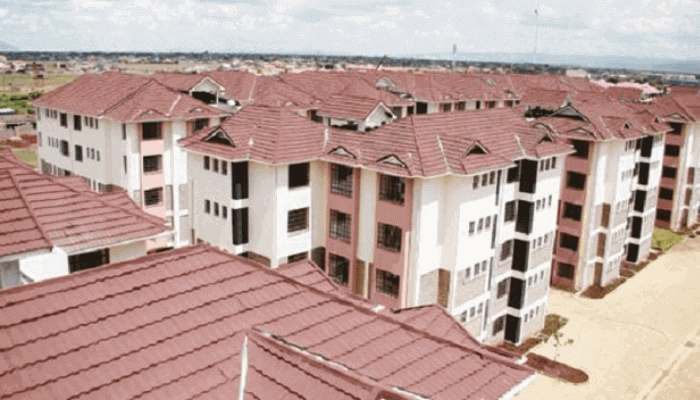Despite delivering over 2.5 million housing units since 1978, Lagos still faces a staggering shortfall in meeting its growing housing needs. A new report, The State of Lagos Housing Market Volume 3, reveals the city is now grappling with a 3.4 million-unit deficit as of 2025.
Progress Made, But Not Enough
The combined efforts of the Lagos State Government, federal agencies, and private developers have produced over 2.57 million homes in the last four decades. However, housing demand continues to outpace supply. The report estimates Lagos needs about 227,000 new housing units annually just to meet population growth.
A major part of the current deficit includes around 618,000 inadequate homes. These dwellings are either structurally unsafe, overcrowded, or lack basic utilities like clean water, proper toilets, and stable electricity.
Slums, Vacant Units, and the Real Challenge
Around 24% of the housing stock in Lagos is considered substandard, often located in slums or informal settlements. Additionally, over 115,000 homes lie vacant, mostly due to poor location and high costs, leading to a vacancy rate of about 4.5%.
Even though the state increased housing supply from 1.4 million units in 2016 to over 2.57 million in 2025, the city’s housing deficit rose by 15% within the same period — from 2.95 million to 3.4 million units.

Rapid Population Growth Outpacing Housing
Lagos’ population has ballooned from 21 million in 2016 to 24 million in 2025, creating about 750,000 new households in under a decade. But housing delivery hasn’t kept up with this surge.
The percentage of renters fell slightly from 83% to 77%, but the actual number of renter households remained unchanged at about 1.39 million — a potential sign of data stagnation or market inflexibility.
Mismatch Between Housing Supply and Affordability
Developers are building more houses, but most of them are luxury units in upscale areas like Ikoyi, Victoria Island, and Lekki. These properties, usually 3–5 bedroom homes, are priced far beyond the reach of average Lagosians, many of whom earn less than ₦100,000 monthly.
Worse still, less than 5% of new homes are priced below ₦15 million, creating an affordability crisis.
Cost Barriers and Red Tape Hindering Progress
The report highlights persistent regulatory challenges. Land titling and documentation processes remain slow and expensive, adding up to 20% extra to housing development costs. These hurdles are discouraging investment and delaying project execution.
Additionally, poor infrastructure — such as bad roads, drainage problems, and unreliable power continues to limit expansion into more affordable areas like Ibeju-Lekki and Badagry.
Young People Can’t Afford Homes
Lagos continues to absorb about 600,000 new residents yearly, mostly youth and young professionals. Many of them struggle to rent or own homes due to low income, job insecurity, and limited access to credit. The report notes a rising interest in co-living and mini-unit models, though supply remains limited.
Luxury Market Soars, But With Limits
High-end homes in Banana Island, Ikoyi, and Eko Atlantic are still attracting wealthy investors and diaspora buyers. Prices in these areas rose by up to 60% in 2024, with six-bedroom properties reaching record values.
However, sales are beginning to cool in parts of the luxury market, affected by forex fluctuations, limited mortgage options, and investor fatigue.
Many of these premium properties are now being converted to short-let rentals and Airbnb-style accommodations, boosting profits but reducing options for long-term residents.
Rising Construction Costs Add Fuel to the Fire
The cost of building materials continues to skyrocket. Cement prices rose from around ₦4,500 in early 2024 to over ₦8,500 by 2025. Imported items like tiles, steel fittings, and roofing materials remain costly due to naira devaluation, port tariffs, and transportation issues.
Even local materials like cement and steel are not spared. Rising diesel prices have driven up logistics costs, especially for sites in underdeveloped areas.
Conclusion: More Homes, But Still Not Enough
The Lagos housing market has seen notable progress, but it remains deeply imbalanced. High-end supply dominates, while affordable housing is still scarce. Without bold reforms including rental policy changes, land access, and support for low-income housing — the city risks further deepening its urban housing crisis.



